Mr. Trump, Have You Heard About Democratic Values?
An effort should be launched to educate our president. His desecration of traditions could pose a constitutional crisis.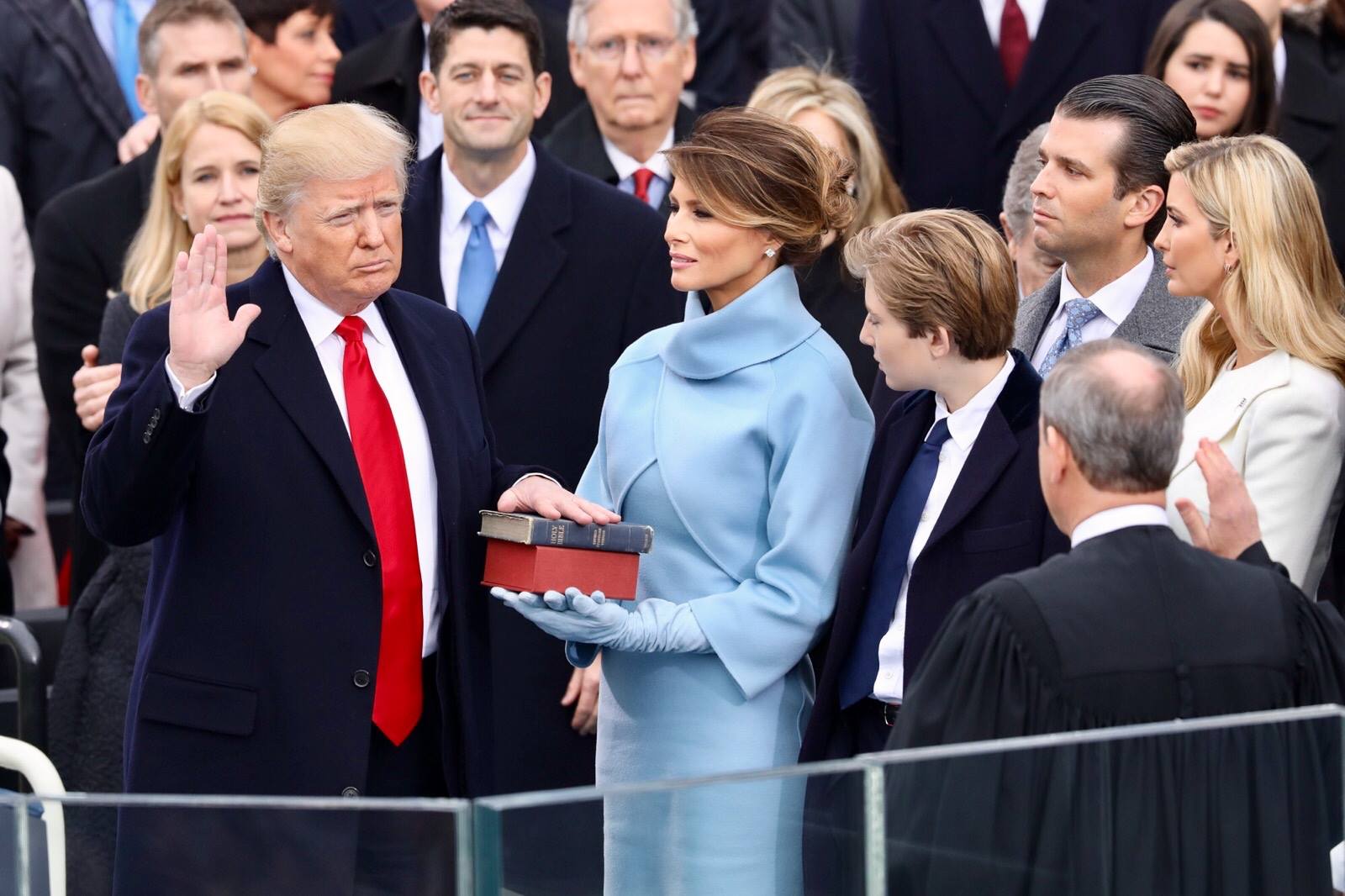 Donald Trump taking the presidential oath of office on Jan. 20, Inauguration Day. (The White House)
Donald Trump taking the presidential oath of office on Jan. 20, Inauguration Day. (The White House)
John Dean is an author, lecturer, commentator and Truthdig contributor. He was White House counsel to President Richard Nixon, whom he famously warned that the Watergate probe had produced “a cancer on the presidency.”
I have been talking with political professionals who, like me, are concerned about the potential threat the Trump presidency poses to our country. These discussions have been with people of all political persuasions—right, center and left. And there has been a recurring theme, for no one can avoid noticing President Trump’s persistent distorting, destroying or abandoning democratic norms and values, the unwritten traditions and expectations that provide guardrails for our system. Remove these protections and democracy is in peril.
It’s unclear whether Trump’s actions are the result of arrogance or ignorance; maybe his behavior is attributable to his authoritarian disposition, or it might be his over-the-top narcissism at work. Whatever the cause, it is clear he is not operating by America’s traditional rules. Trump is doing things our highest elected official has never done, and this deviation has happened so often during his young presidency that it seems to be his standard operating procedure.
So far, the norms and values he has eviscerated are not laws, but rather the processes, procedures and standards of conduct that have never called for laws, for they are so widely accepted there was no need to make them laws. Trump’s disregard of these customs and practices are exceptional, creating an unprecedented situation, so let me be specific.
American presidents had never persistently lied about everything, from the crowd size at their inauguration to the reason they fired the director of the FBI; they had never hired in the highest staff post at the White House, as national security adviser, a committed liar with known ties with foreign governments; they had never attacked the national security intelligence community because it uniformly concluded Russia helped elect them by hacking their opponent and leaking private information; presidents had never held press conferences without being prepared to answer conspicuous and predictable questions; they had never labeled leading American news organizations “enemies of the people” and accused them of reporting “fake news” whenever that news did not flatter; they had not used their high office for personal financial gain, ignored obvious financial conflicts of interest or assigned to their immediate family complex foreign and domestic problems for which those relatives had absolutely no background, experience or qualifications to address; they had not televised their first Cabinet meeting so their appointees could heap public praise on them; no Oval Office occupant had falsely claimed the leader of the Boy Scouts had glowingly approved of a speech when, in fact, that leader instead felt it necessary to apologize for the president’s embarrassing remarks; not even Richard Nixon during or after the Watergate investigation called that inquiry a “witch hunt,” as Trump has done with the special counsel’s investigation of his presidential campaign’s relationship to the Russian hacking of the 2016 presidential race; no president had so blatantly blamed others for his own mistakes and failings. And this is only a sampling of norms obliterated by Trump.
Maybe the most insulting action by Trump is his description of his new home, 1600 Pennsylvania Ave., a site selected by George Washington, who supervised construction of the mansion that today has 132 rooms, 35 bathrooms, 28 fireplaces and eight staircases—considered by most Americans, and all of its former residents, to be a national treasure. Trump, however, has told friends that the “White House is a real dump.” (Frankly, I don’t believe Trump’s protest that the reporter got it wrong; rather I believe the circle of people who heard his disparaging comment.) The first president to live in the White House, John Adams, had a prayer for the house, which President Franklin Roosevelt had carved onto the stone fireplace in the State Dining Room. Until Donald Trump arrived, the sentiment set a norm: “I pray Heaven to bestow the best of Blessings on this House and on all that shall hereafter inhabit it. May none but honest and wise Men ever rule under this roof.”
Political scientist Brendan Nyhan, interviewed in The Atlantic shortly after Trump’s election victory, observed: “… [T]he actions of the Trump administration-in-waiting suggest that they will be unconstrained by many of the previous norms that have limited the power of the executive branch. I think at the very least we are seeing an erosion of democratic norms in America.”
Last December, Daniel W. Drezner, a professor of international politics at the Fletcher School of Law and Diplomacy at Tufts University, wrote a Washington Post article cautioning against three ways Trump was upending norms:
—His “very conservative Cabinet appointments.”
—“Unpresidented” actions that included use of Twitter to attack his critics, his continuing political rallies, his “decision to lean on generals and chief executives to staff the foreign policy portions of his Cabinet,” his singling out of corporations for criticism or praise, and making his daughter Ivanka “the de facto first lady.”
—His “refusal to properly divest from his company, which set up massive conflicts of interest in foreign policy.”
Six months into his presidency, the always thoughtful Emily Bazelon was asking, as The New York Times Magazine headline put it, “How Do We Contend With Trump’s Defiance of ‘Norms’?” And when the administration was less than three months old, I asked, in the words of the headline in Verdict, “Is Trump’s Norm-Breaking Presidency Un-American Or Merely Unorthodox?” My conclusion was that “his behavior is so outrageous it appears un-American. It is certainly beyond simply being unorthodox, because ignorance at this level is neither tolerable nor excusable.”
Other political observers, too, have noted Trump’s departure from democratic norms and values, so it is not surprising this has been a matter of recurring concern among most with whom I have discussed his presidency. The larger question is what, if anything, might be done about this slow but steady desecration of our democratic traditions in view of the president’s Republican peers in Congress having shown no collective interest in checking his behavior. In fact, it is widely believed that if Trump acted out his infamous declaration about shooting someone in the middle of New York City’s Fifth Avenue, the Republican-controlled Congress would find an excuse to ignore his crime. No knowledgeable person with whom I have discussed the situation believes that Trump will be impeached and removed from office, regardless of his behavior, so long as Republicans control the House or Senate.
With every norm Donald Trump openly violates, he edges closer to ignoring the procedures and standards of behavior that have been enacted or codified into laws. Trump appears to believe, or maybe just pretends, he is above other mortals. With the American presidency under Trump slowly becoming unorthodox and un-American, perhaps before long it will be unlawful and unconstitutional. Somehow, someway, the Trump presidency must be controlled. He is not above the law, or the Constitution, and Americans must not supinely accept his flouting and defiance of the norms and values that have long accompanied the American presidency.
Trump’s unchecked behavior raises two fundamental questions for me: (1) Why do we have a government and (2) how is it supposed to work? James Madison provided a timeless answer to both, when he, the “father of the Constitution,” penned in Federalist No. 51: “If men were angels, no government would be necessary. If angels were to govern men, neither external nor internal controls on government would be necessary. In framing a government which is to be administered by men over men, the great difficulty lies in this: you must first enable the government to control the governed; and in the next place oblige it to control itself.”
No sooner had I reread all of Federalist No. 51 than my Twitter feed caught my attention with word of Trump berating Congress after the Republican-controlled Senate failed to repeal and replace Obamacare: “If a new HealthCare Bill is not approved quickly, … BAILOUTS for Members of Congress will end very soon!” In another tweet, this president with absolutely no understanding of history urged the Senate to eliminate the filibuster so only 51 senators—which is all the GOP has—could enact legislation; 60 votes are needed to end filibusters. Trump’s threat to cut off health care funding for members of Congress (clearly illegal) and his imploring the Senate to become more like the House by removing the institutional check of the filibuster (clearly none of his business) were exactly the opposite of the separation of powers and the checks and balances that Madison lays out in Federalist No. 51 and that have been built into our Constitution. More democratic norms and values Trump wants to trash.
To my knowledge, no one has ever attempted to catalog the fundamental norms of our democracy. Collecting and cataloging these “unwritten expectations,” as Bazelon calls them, could be helpful. Today, many Americans have little understanding of government, not to mention the norms and values that keep it functioning. Given that it is doubtful Donald Trump has ever read the Constitution, not to mention the Federalist Papers explaining it, gathering the norms and sending them to him might help, or at minimum preclude a claim of ignorance on his part.
Some of the political pros with whom I have been talking might be interested in helping assemble this information. Who knows what we might come up with? Stay tuned. Maybe we could start a wiki (a website encouraging collaborative editing of content by users), not only to enlist the thoughts of others but to share the information gathered. We must start somewhere to restrain this untethered presidency, and by gathering the most important norms we can clarify our own thinking and remind the president (and his staff) of what is unacceptable behavior.
This is important to me because I witnessed President Nixon (who knew exactly what he was doing) move from violating norms and values to violating laws and, as a result, being forced from office. Nixon did not create a constitutional crisis by refusing to leave, and the thought that he might do so never occurred to me. Watching Donald Trump ignore democratic norms and values, and his behavior as president, I see a constitutional crisis in process. It gives me a knot in my stomach that Nixon could never produce. It is past time to address behavior that is unacceptable to overwhelming numbers of Americans and detrimental to the nation.
Your support matters…Independent journalism is under threat and overshadowed by heavily funded mainstream media.
You can help level the playing field. Become a member.
Your tax-deductible contribution keeps us digging beneath the headlines to give you thought-provoking, investigative reporting and analysis that unearths what's really happening- without compromise.
Give today to support our courageous, independent journalists.
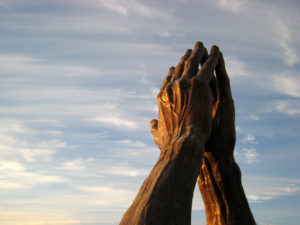
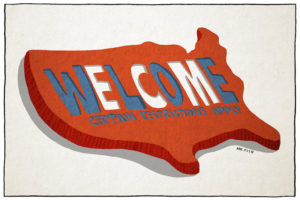
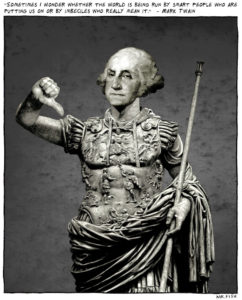

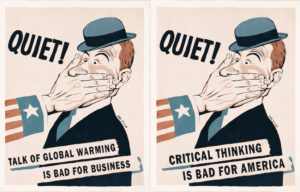
You need to be a supporter to comment.
There are currently no responses to this article.
Be the first to respond.